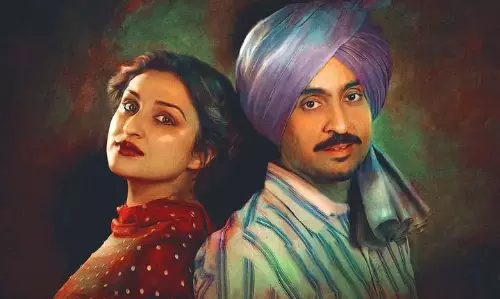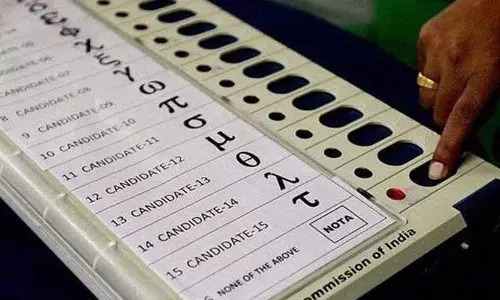
Laws are for the citizens
text_fieldsA plea filed in the court questioning Central government's move to make Aadhar mandatory has now triggered a full-fledged discussion on the constitutional aspects of 'right to privacy'.
The Supreme Court has formed a nine-member Constitution bench to decide on the matter. The court at present has crucial questions related to the democratic civil rights in India before it. DNA profiling Bill which legalizes the collection of biometric data that records even personal details is set to be tabled before the Parliament. The Bill is being passed without any provisions to curb the misuse of personal details of individuals. The Unique Identification Authority of India (UIDAI) had repeatedly assured that the personal data they held were ‘fully safe and secure’ and wouldn’t be leaked to the outside. However it revealed 2-3 months back that details of up to 13.5 crore individuals were leaked through the internet. It’s when anyone could get their hands even on personal information deemed ‘safe’ that the Central government argues in the Supreme Court to provide legal sanctity to the violation of privacy. That the Attorney General could claim in court that privacy wasn’t a Constitutional right at all could itself be seen as a signal of grave danger. His statements are also the most despicable of all the arguments posed by the government to get legal backing for Aadhar. If the claim that the Aadhar project couldn’t be abandoned as Rs 5, 000 crore has been spent on the scheme, defies logic, the fact that right to privacy is not a fundamental right is also similar to unwarranted desire for power.
The Constitution as per the claims, does not mention privacy as a fundamental right. Legal experts have pointed out that the right to individual privacy would fall under the purview of Article 21 which ensures right to life and personal liberty. Just like freedom of press is related to the freedom of expression and right to employment is an extension of right to life, individual freedom also incorporates privacy. It might be because of the fact that Union Minister Arun Jaitley who is also a lawyer, stated in the Parliament that privacy was ‘probably’ a fundamental right and a ‘part of individual liberty’. It’s the government that also includes Jaitley which argue in the court that the Indian Constitution doesn’t define privacy. The government highlights two Supreme Court verdicts of 1954 and 1962 to back their claims. However these two verdicts delivered wasn’t anyway related to privacy. The matter was only about whether the police had the right to capture and put those suspected as dacoits under surveillance. The concepts of privacy and breach of privacy have been broadened to more grounds that didn’t exist when the Constitution was being written. It’s by feigning ignorance on such matters that the government continues to claim that the Constitution doesn’t define the right to privacy.
It is likely that the way the concept of freedom of press, despite not being precisely mentioned, was drawn out of the Constitution can be followed in the case related to 'privacy' as well. It’s notable that during the digital age, individual privacy face threats not only from the government but also from the corporates and criminals. After the MP Sharma-Satish Chandra case in 1954, it should also be noted that the legal knowledge and approaches have evolved into more liberal definitions. Didn’t the Supreme Court elucidate in the 1963 Kharak Singh case that ‘several rights of the citizens in fact back the right to privacy’. The right to privacy can be considered along with the preamble of the Constitution that ensures the ‘right to dignity’. The European documents related to human rights issues including that of India have highlighted the ‘right to personal and family life’. It means that the Indian citizens have already been ensured the right to privacy. There are many Constitution experts who believe that privacy exist as a fundamental right in the essence of the country’s Constitution and its implementation so far. It’s wrong to pay no heed to the risks posed while reviewing this right on the pretext of the Aadhar case. If privacy is ruled to be a no fundamental right, it will pave way for more power for the government and those with vested interests. It will be similar to declaring that the government is more important than the citizens. The verdict of this case will determine the further functioning of the Indian democracy. Let the verdict prove the prudence and democratic conscience of the judiciary.

















